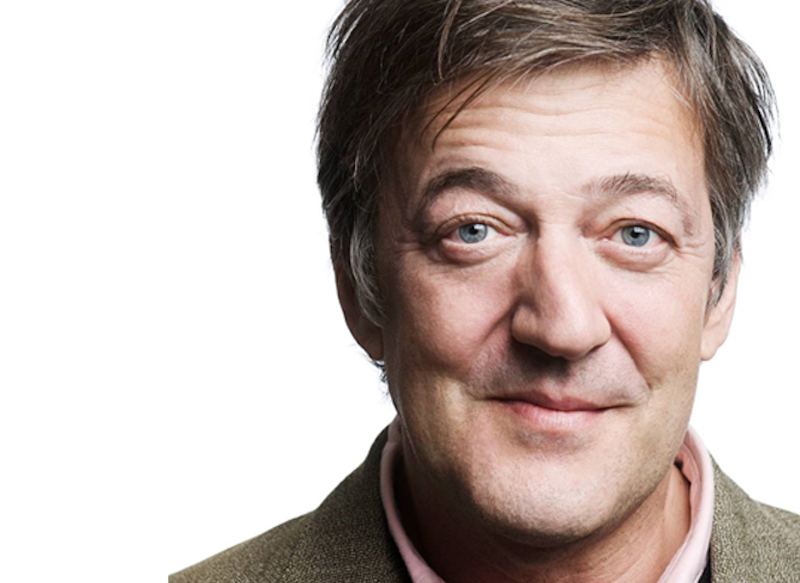Last night, English actor, writer, comedian, narrator, presenter and director Stephen Fry became this year’s first recipient of Trinity Law Society’s (LawSoc) Praeses Elit Award. Jonathon Boylan, the auditor of the society, interviewed the esteemed guest.
Fry is a household name for many. Some of his career highlights include hosting the popular quiz show QI, writing a celebrated collection of re-imagined Greek myths, starring roles in films such as Wilde, Gosford Park and the TV shows Blackadder and A Bit of Fry and Laurie. This hour-long Zoom conversation, complete with a backdrop of Fry’s neutral-palette room crowded with books, a piano, and blankets, was personal in every sense of the word.
President of the charity Mind, one of the largest mental health charities in the UK, Fry has been vocal about his experience with bipolar disorder. Last night, he spoke about his “miserable 15-year-old self” and how “everything he does” today is for that version of himself. When asked about his own mental health struggles, he said that what helped him through was the “connection” he could make with other creatives who seemed to be able to communicate things about themselves with great ease. Fry emphasised their “openness, honesty, acceptance, and ability to achieve things”.
The tone of the Zoom was somehow casual yet deeply insightful. Fry spoke openly about more well-known parts of his character, discussing his sexuality, bipolar disorder, and his successful career. Moving beyond the routine interview topics, he also touched on the question of faith, believing in God and atheism.
He drew on anecdotes to discuss the changing nature of human friendships and reflected on his time studying at Cambridge where he met lifelong friends such as Emma Thompson and Hugh Laurie. Perhaps more relatably, Fry engaged with important aspects of university life. In his own words, university meant “experimenting with love, sexuality, nature and identity”. Fry, who is an advocate for LGBTQ+ rights in Britain and around the world, openly discussed the importance of pronouns during the call.
Greek mythology has greatly influenced Fry’s career, and this could be heard in the timbre of his answers. He drew examples from mythical stories, comparing the “Prometheus myth” (where the Greek god Prometheus gives fire to humans, making the need for the gods redundant) to Artificial Intelligence. In doing so he raised the question: should we give AI the qualities of empathy, compassion, and even a soul? Thus, would humans be seen as destructible “bugs”?
He also casually drew from scholars like Sigmund Frued, Jonathan Swift, and Oscar Wilde, quite obviously highlighting how well-read he is. Fry’s answers were both sophisticated and philosophical. Impromptu, he raised the question: “How do humans define having a soul?”
Among anecdotes, mythology, and poetic rambling, Fry indirectly sprinkled his answers with important life advice. “Saying no is risk-free, risk-averse”, he told attendees. “Failure is not a person. A person can’t be a failure, nor does success make a person successful”, he went on. And: “Until you’re straight with yourself, you can’t be straight with the world.” In his own words, such quotes might be described as “tea towel mottos”, though listeners on the Zoom likely felt the quality and authenticity of his sentiments.
The final question, sent in by a member of the audience, asked what Fry thought of Love Island influencer Dr Alex George becoming the Youth Mental Health Ambassador for the UK. In summary, Fry replied that it was a good thing that more relatable influencers took these positions. He said: “Snobbery, tall, white, plummy voiced, privately-educated figures like myself” are no longer in positions to speak for so many people.
In his final goodbyes, Fry thanked LawSoc for this “deep honour”. Finally, he promised to revisit Dublin as soon as “legally and clinically possible”. This may have just been a pleasantry, but I think everyone hoped it was true.







